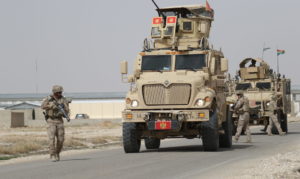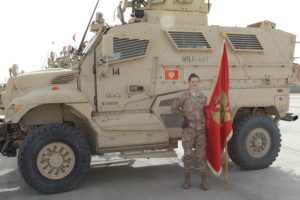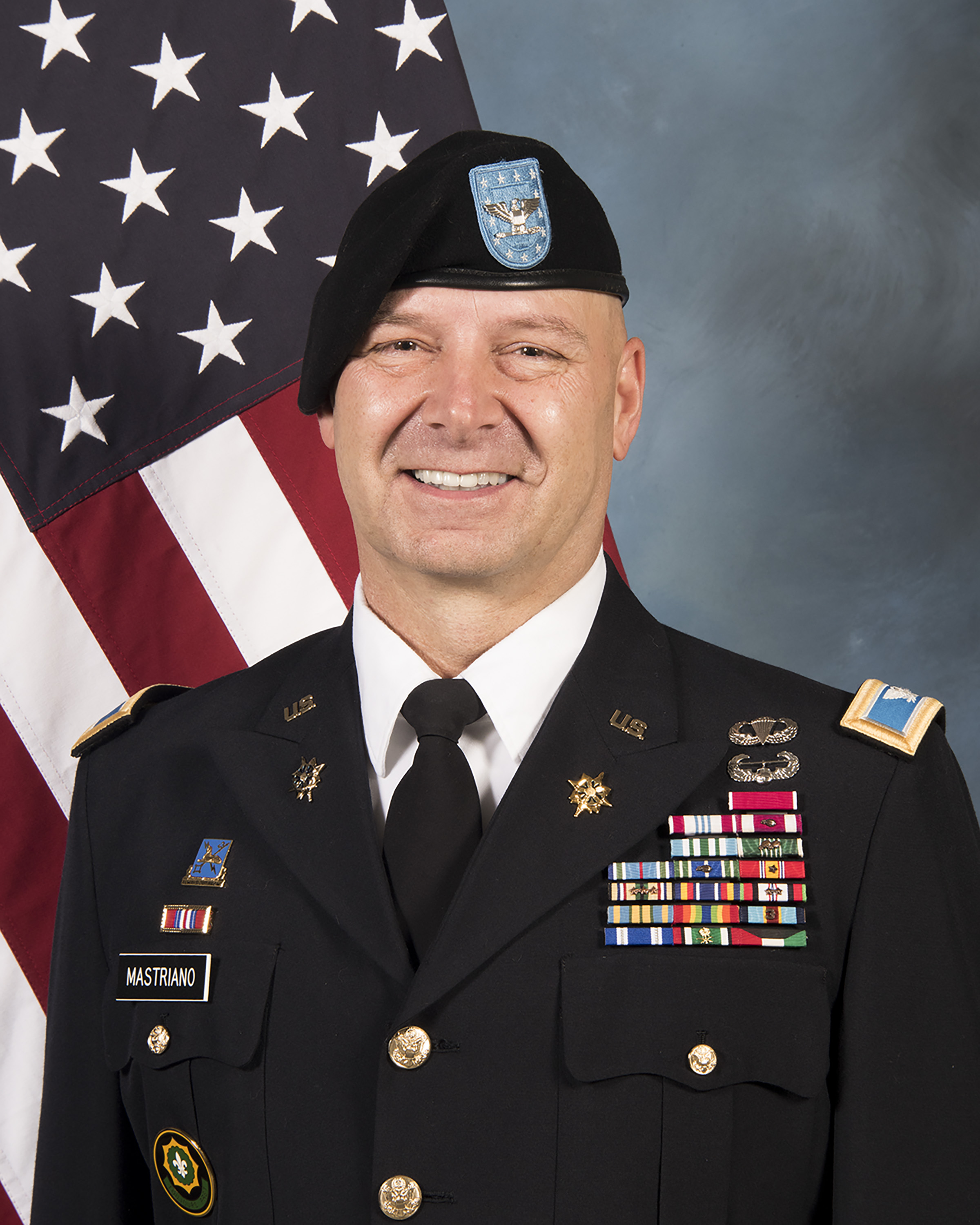In classic Soviet style, Vladimir Putin’s plane cut across Estonian airspace while en route to meet President Trump in Helsinki, Finland. Although Russian violation of Baltic airspace and territorial waters is not unusual, this flight was something altogether exceptional. This was no accident but the first of many tests of America’s commitment to the NATO alliance. Putin sees a fracture developing between the United States and its European allies on the heels of Trump’s harsh criticism about most NATO members’ insufficient military spending. It is no secret that America’s Canadian and European friends have exploited American generosity by underspending massively on their own defense. President Trump’s tough talk to NATO and especially to Germany’s acrimonious Angela Merkel was long overdue. However, Putin’s violation of Estonian airspace was a test—one that America failed.
Instead of taking the opportunity to publically reaffirm America’s commitment to NATO on the heels of Putin’s jab, Trump did not offer a word during the summit. The president’s missed opportunity was exacerbated during his interview with Tucker Carlson when he questioned Article 5 of the North Atlantic Treaty, which promises mutual defense—an attack upon one NATO member shall be considered an attack upon all. During the interview, President Trump said that NATO’s newest member, Montenegro, “is a tiny country with very strong people… They’re very aggressive people. They may get aggressive and, congratulations, you’re in World War III.” Ironically, the United States Senate approved Montenegro for NATO membership in March 2017 during President Trump’s time in office. If there was concern that an aggressive Montenegro would entangle America in a war it didn’t want, why didn’t someone stop this vote? In fact, my local high school in Chambersburg, Pennsylvania, was bigger than Montenegro’s army. Its force includes a paltry 1,950 soldiers and will certainly not march off to start World War III. The reaction to the president’s remarks understandably sent shockwaves across Europe. Nowhere was the shock greater than in the NATO Baltics nations of Estonia, Latvia, and Lithuania, who all share a border with Russia and have considerable ethnic Russian populations. Unless the president immediately and strongly reaffirms America’s commitment to NATO’s Article 5, we may find ourselves slipping toward a clash, if not a war, with Moscow.

NATO was founded in the aftermath of two horrific world wars. The First World War resulted in over 41 million casualties and triggered a new and hitherto unknown industrial way of killing both soldiers and civilians. Although the United States entered the war late, it played the decisive role in defeating Imperial Germany. Once the war ended, America wasted little time to withdraw from Europe and demobilize its forces. For the next two decades, the US stood by as blood-thirsty, atheistic, communist, and fascist governments in Europe rose from the rubble of WWI to unleash one of the bloodiest epochs in world history.
Regarding Nazi Germany, France and Britain attempted to accommodate and appease Adolf Hitler to avoid war, and this lack of resolve played right into his hands. They permitted Hitler to take the Rhineland and then Austria without any retribution for his flagrant violations of international law and order. The allies even gambled away the German-speaking regions of Czechoslovakia (Sudetenland) in an effort to avoid war with Hitler. Hitler thanked them by gobbling up all of Czechoslovakia a few months later. Sensing continued weakness, Hitler rolled the dice once again on September 1, 1939, by invading Poland. Although London and Paris declared war, they did nothing, and in the end the United States of America had to wake from its slumber to deal the knockout blow to one of the world’s bloodiest dictators. The causalities of the Second World War were so immense that accurate numbers are impossible to ascertain. Some historians place it as high as 80 million.
In the aftermath of World War II, the United States was again tempted to rapidly demobilize its forces and retreat back to North America. But in this new world with a massive Soviet Red Army poised to sweep across Western Europe in what would have clearly resulted in World War III, the US had to embrace a different approach. American leaders such as General Marshall wanted to do all they could to avoid another bloody war with a different approach. From the lessons of two horrific world wars, American and European leaders developed the NATO alliance’s concept for mutual defense and cooperation that served as the model of deterrence against a Russian-led Soviet war in Europe. This deterrence model, backed up by the resolve and commitment of the United States, has made NATO the most successful military alliance in the history of the world. America’s leadership in NATO has unleashed an unparalleled peace in Europe that has now lasted 70 years.
American support for NATO was ratified in 1949 with an overwhelming bipartisan vote in the Senate that codified into law our participation in this alliance. The United States has similar mutual defense treaties around the world with many other nations. Yet, in one interview with Tucker Carlson, America’s prestige and commitment is now in question.
It is a risky move to undercut the most successful and time-proven military alliance in the history of the world all to appease Vladimir Putin. Despite his kind words and fair speeches, Putin is on record as saying that his goal is to undermine and destroy both the United States and NATO. He is not our friend and can’t be trusted. His unprovoked cyberattack against Estonia in 2007 was the beginning of a new age for Russia when it was determined to both meddle and interfere in the internal affairs of its neighbors. This was followed in 2008 by a devastating Russian invasion of Georgia, the 2014 annexation of Crimea, and its ongoing bloody war against Ukraine. How much more evidence is needed to demonstrate that Putin is no friend of the United States? His declared foreign policy is to reassert Russian influence in Europe and to undercut America around the world
Greek general Thucydides wrote nearly 2,400 years ago that nations and states go to war out of fear, or for honor, or to advance their national interests. Things have not changed and these triggers for conflict ring true today. The trust and prestige of the United States as a reliable and trustworthy ally is now in question. Putin sees this and will test the waters to ascertain if he can leverage this weakness to expand his influence and even his domination in European and Eurasian regions that are strategically important to Moscow. Among those in his crosshairs are Estonia, Latvia, and Lithuania, which have significant ethnic Russian populations (in the cases of Estonia and Latvia) and are important for access to the Baltic Sea and Kaliningrad.

The ironic thing regarding President Trump’s remarks is that Article 5 has only been invoked once. In the aftermath of 9/11, NATO stood with the United States. Men and women from across Canada and Europe deployed to Afghanistan to fight an American war. These allied nations had no other interests there other than living up to the promise they made to America with their commitment to NATO. Nearly half of that war’s casualties were from our allies and partners from around the world. Now it’s our turn. Will the United States disregard the hard-learned lessons of two world wars and turn its back on NATO, or will we reaffirm this most successful military alliance in history as something that must be preserved?
Solomon is correct when he says in Ecclesiastes 4:12 that “one may be overpowered, two can defend themselves. A cord of three strands is not quickly broken.” The United States is stronger when it works with allies, and this was true from the birth of the nation. The American Revolution would have failed without the French navy and army physically fighting alongside us to defeat the British. It is daunting for any nation to entertain the notion of taking on the 29-member NATO, and with firm resolve and military strength, this alliance is a bulwark to deter aggression from Moscow and elsewhere. Additionally, from a Christian perspective, we are expected by God to honor our treaties and agreements. In 2 Samuel 21, we read of the punishment that Israel experienced by violating its treaty with the Gibeonites. A ratified treaty is binding and long-lasting, and that is what we have with NATO.
Why should average Americans care? The answer is simple: without the United States being in NATO, there will be a bloody war in Europe that will eventually drag America into it at a high cost in lives and treasure. Americans often say that “eternal vigilance is the price of liberty.” Vigilance and preparedness is also the price of peace. The United States’ proactive actions in NATO have prevented wars and thereby saved millions of lives, including the lives of our sons and daughters. The old saying that “if it ain’t broke, don’t fix it” rings true. Although NATO has its issues, it works and has preserved peace for both our nation and vast swathes of Europe. Millions of lives have been saved, and prosperity for both North American and Europe has been preserved. We have forged friendships that have endured generations, and those friends have even fought by our side in Afghanistan after we were attacked. The lessons from history are clear, and America is at a crossroads. Turning our backs on NATO will result in an uncertain future wrought with war and conflict that will cost America far more in the end than continuing our leadership and support for the alliance that has preserved peace.
—
Doug Mastriano, PhD, is an award-winning author and recently retired US Army colonel with more than 30 years of service, including along the Iron Curtain during the Cold War and in Iraq and Afghanistan. He served four years in NATO and deployed three times with NATO to Afghanistan.
Photo Credit: Defense Secretary James N. Mattis hosts Montenegro’s Minister of Defence Predrag Bošković for a meeting at the Pentagon in Washington, DC, on Feb. 27, 2018. DoD photo by U.S. Air Force Tech. Sgt. Vernon Young Jr.







 Sponsor a student for Christianity & National Security 2024
Sponsor a student for Christianity & National Security 2024